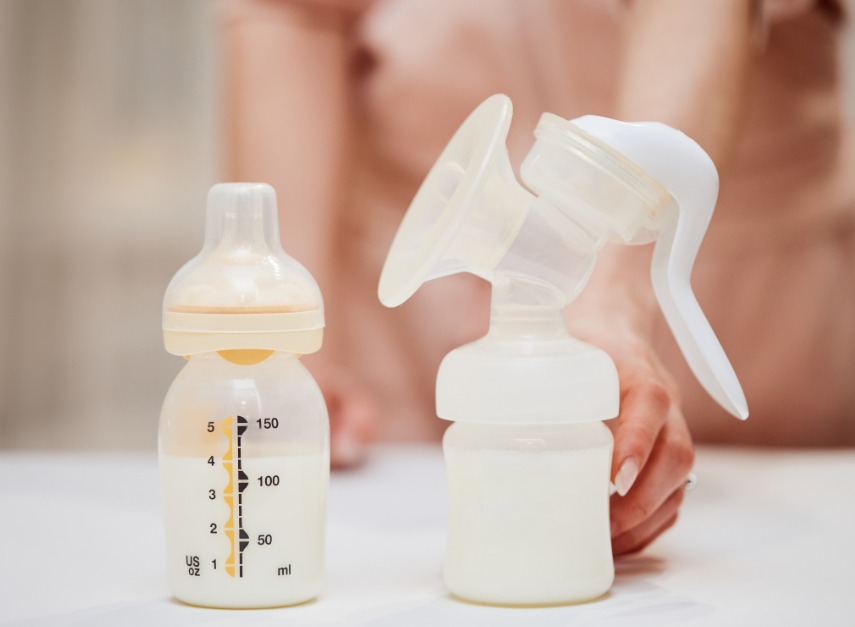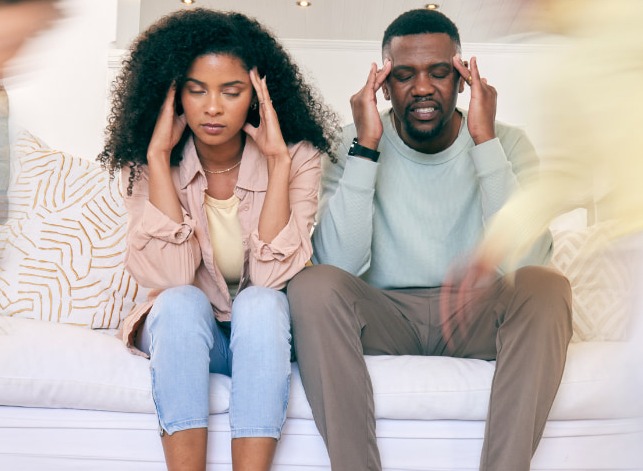- Home
- Share
- Forum
- General forums
- Living with anxiety and other mental illnesses
- 13 Things to Remember When You Love a Person Who Has Depression
13 Things to Remember When You Love a Person Who Has Depression
- 200 views
- 10 times supported
- 13 comments
All comments
Go to the last comment
Unregistered member
Reading this really helps. I need to be reminded of these things again and again. I instinctively fall back to thinking that I have done something wrong, or that I can do something to make them better. Thanks for this.

Unregistered member
Thankyou for this, My problem at the moment is my daughter pushing me and her father away. He doesn't suffer from depression but she is a very angry young lady and uses my grandaughter as a pawn which is very difficult for me. I lost my dad and my husband recently and still have issues in dealing with this and she thinks I am wallowing in it. Some days I just feel so sad and empty and my grandaughter keeps me going and injects a happpiness and joy into my life. Just wish I could feel "normal" again!

Carly74
![]()
Carly74
Last activity on 29/12/2015 at 15:09
Joined in 2015
7 comments posted | 1 in the Living with anxiety and other mental illnesses group
Rewards
-
Friend
cant get passed the empty feeling like im about to cry and nothing comes out been feeling this for a long time just so much going round in my head why cant I snap myself out of it feeling like I wont to cry but no tears just sadness why do I feel like this it so cold were my head is x
See the signature
cj loft
![]()
Hopeless
![]()
Hopeless
Last activity on 29/09/2023 at 12:37
Joined in 2015
3 comments posted | 3 in the Living with anxiety and other mental illnesses group
Rewards
-
Explorer
Hi I am new here but I am feeling so desperate and alone. I have had depression for many years but it has become much worse as i am in a difficult position having to find a new home from the house I have lived in for 60 years, I have chronic pain and all I can think of is to end it all. Everything is so hopeless, no matter what I do goes wrong, I have treatment but it doesn't seem to help and i cannot face anymore.
![]()
Stemosh
Good advisor
![]()
Stemosh
Last activity on 15/03/2016 at 08:55
Joined in 2015
5 comments posted | 5 in the Living with anxiety and other mental illnesses group
Rewards
-
Good Advisor
-
Committed
Hi everyone I've suffered for depression for 6 years and I've had good spells and very bad spells but this past year and a half I've had my gorgeous girlfriend to thank for lifting me. She's recently had surgery and I've struggled so much to look after her that I've relapsed due to extra hours, booze and stress. Even though I'm really struggling with thoughts about me and my girlfriends relationship I know it is the depression making me doubt it NOT me. i want you all to know that the way you feel at the moment is NOT you it's the depression and it WILL pass you just need to stay strong and be patient

Sutherland
Good advisor
Sutherland
Last activity on 07/11/2024 at 20:58
Joined in 2015
17 comments posted | 6 in the Living with anxiety and other mental illnesses group
1 of their responses was helpful to members
Rewards
-
Good Advisor
-
Contributor
-
Committed
-
Explorer
-
Evaluator
Hi All.
Reading all 13 of those Loving a person with Depression was certainly enlightening.
Question is, when you both are suffering from depression!
That is the situation I find myself in. How do you imply those 13 suggestions?
See the signature
I Sutherland

Unregistered member
This is great advice ![]()

Unregistered member
I so love this :D spot on!

Unregistered member
Im literally sitting here in tears. Nobody understands what I'm going through. My husband certainly doesn't. And as much as I try explain it to him, I can tell he's frustrated and sad and angry. We've recently be through something fairly traumatic and it feels like he's simply just not there anymore. And I've never felt insecure with him but lately I do. And I know it's the depression talking cos he'd never hurt me. He just wants me to be happy. But how do I tell him these things that he needs to do? It's a great list but not sure can share it with him.

Unregistered member
Such great advice I'm going through a tough time at the moment with my partner finding up that he could only have two years really shook me up however I know he will fight this what would be the best advice to give him to stop him from getting down about this
Give your opinion
Survey
Articles to discover...
Subscribe
You wish to be notified of new comments
Your subscription has been taken into account








Unregistered member
I found this on Facebook - it was linked from this site: medprecautions.com
1. Depression is not a choice.
Depression is one of the most helpless and frustrating experiences a person can have. It’s sometimes feeling sad, sometimes feeling empty, and sometimes feeling absolutely nothing at all. There are times when depression can leave someone feeling paralyzed in their own mind and body, unable to do the things they used to love to do or the things they know they should be doing. Depression is not just a bad day or a bad mood and it’s not something someone can just “get over.” Remember no one chooses to be depressed.
2. Saying things like “it’ll get better,” “you just need to get out of the house,” or “you’ll be fine” is meaningless.
It’s easy to tell someone these things because you think you’re giving them a solution or a simple way to make them feel better and to ease their pain, but these kinds of phrases always come across as empty, insulting, and essentially meaningless.
Saying these phrases to them only create more tension within, making them feel as though they’re inadequate, and like you’re not acknowledging what they’re going through by trying to put a band aid on a much larger issue. They understand you’re just trying to help but these words only make them feel worse. A silent hug can do so much more than using cliched sayings.
What you can say instead:
I’m here for you. I believe in you. I believe you are stronger than this and I believe you’ll get through this. What can I do to help you? What do you think would make you feel better?
Avoid offering advice but instead just let them know you’re there for them and ask them questions to help guide them in discovering what could make them feel better.
3. Sometimes they have to push you away before they can bring you closer.
People who suffer from depression often get frustrated with feeling like they’re a burden on other people. This causes them to isolate themselves and push away people they need the most, mentally exhausting themselves from worrying about if they’re weighing their loved ones down with their sadness. If they become distant, just remember to let them know you’re still there, but don’t try to force them to hang out or talk about what’s going on if they don’t want to.
4. You’re allowed to get frustrated.
Just because someone deals with depression doesn’t mean you have to cater to all of their needs or walk around eggshells when you’re around them. Depressed people need to feel loved and supported but if it begins to create a negative impact on your life you’re allowed to acknowledge this and figure out how to show them love and kindness without self-sacrificing.
5. It’s important to discuss and create boundaries.
In those moments of frustration it’s important to take a step back and look at how you can help the depressed person while also maintaining your own sense of happiness and fulfillment. Be patient. Talk to them about your concerns and explain the boundaries you need to create within your relationship. Find out something that works for both of you.
6. They can become easily overwhelmed.
Constant exhaustion is a common side effect of depression. Just getting through the day can be an overwhelming and exhausting experience. They may seem and look totally fine one moment and in the next moment feel tired and have no energy at all, even if they’re getting plenty of sleep every night. This can result in them canceling plans suddenly, leaving events early, or saying no to things altogether. Just remember it’s not about anything you did. It’s just one of the prevalent side effects of living with the disease.
7. It’s not about you.
When you have a loved one dealing with depression it can be difficult to understand what they’re going through and to consider how their sadness is a reflection of your relationship with them. If they need space or become distant don’t blame yourself and wonder how you could do things differently to heal them. Understand their depression is not about you.
8. Avoid creating ultimatums, making demands, or using a “tough-love” approach.
Telling someone you’re going to break up with them or not talk to them anymore if they don’t get better is not going to magically cure them of their illness. They won’t suddenly become the person you want them to be just because you’re tired of dealing with their problems. It’s a personal decision to walk away from someone if their issues become too much for you and your relationship with them, but thinking the ‘tough-love’ approach will make them better is unrealistic and manipulative.
9. They don’t always want to do this alone.
Many often assume people dealing with depression want to just be left alone. While there are may be times when they want their space, this doesn’t mean they want to face their fears completely alone. Offer to take them on a drive somewhere. Ask if they want to get coffee or a meal. One on one time where you can bring them out of their routine and where you two can connect can often mean everything for them. Reach out to them unexpectedly. Remind them they don’t have to do this alone.
10. Try not to compare your experiences with theirs.
When someone is going through a rough time we often want to share with them our own stories to let them know you’ve gone through something similar and can relate with their struggle. When you say something like, “oh yeah, this one time I was depressed too…” it only makes them feel like you’re minimizing their pain. Express empathy but don’t suppress their feelings. The greatest resource you can share with your friend is your ability to listen. That’s all they really need.
11. It’s okay to ask your friend where they are in their feelings.
How are they really feeling and how are they coping with their depression? Suicidal thoughts are a common occurrence for depressed people and it’s okay to directly ask them ways they’re practicing self-care and to come up with a safety plan for times when their depression becomes too overwhelming.
12. Schedule time to spend together.
Offer to spend time with them once or twice a week to exercise, grocery shop, or hang out together. Ask if you can cook dinner with them and plan a friend date. One of the hardest parts of depression is feeling too exhausted to cook healthy meals, so you can really help them out by cooking food they can store in their fridge or freezer for a later time.
13. Just because someone is depressed doesn’t mean that they’re weak.
In his book Against Happiness: In Praise Of Melancholia, author Eric G. Wilson explores the depths of sadness and how experiencing mental anguish can actually make us more empathetic, creative people. Although he explains the difference between depression and melancholia, he rejects the idea of inflated happiness our culture and society is obsessed with, and instead explains why we reap benefits from the darker moments in life. Wilson writes:
“I for one am afraid that our American culture’s overemphasis on happiness at the expense of sadness might be dangerous, a wanton forgetting of an essential part of a full life. I further am wary in the face of this possibility: to desire only happiness in a world undoubtedly tragic is to become inauthentic, to settle for unrealistic abstractions that ignore concrete situations. I am finally fearful over our society’s efforts to expunge melancholia from the system. Without the agitations of the soul, would all of our magnificently yearning towers topple? Would our heart-torn symphonies cease?”
In a similar manner psychiatrist and philosopher, Dr. Neel Burton, discusses in his Tedx talk about how some of the most influential and important people in history have experienced depression. He explains the way our culture looks at and treats depression and how traditional societies differ in their approach, seeing human distress as an indicator of the need to address important life problems, not a mental illness.
It’s important to remember depression is not something that should be considered shameful and experiencing it doesn’t make someone weak or inadequate.